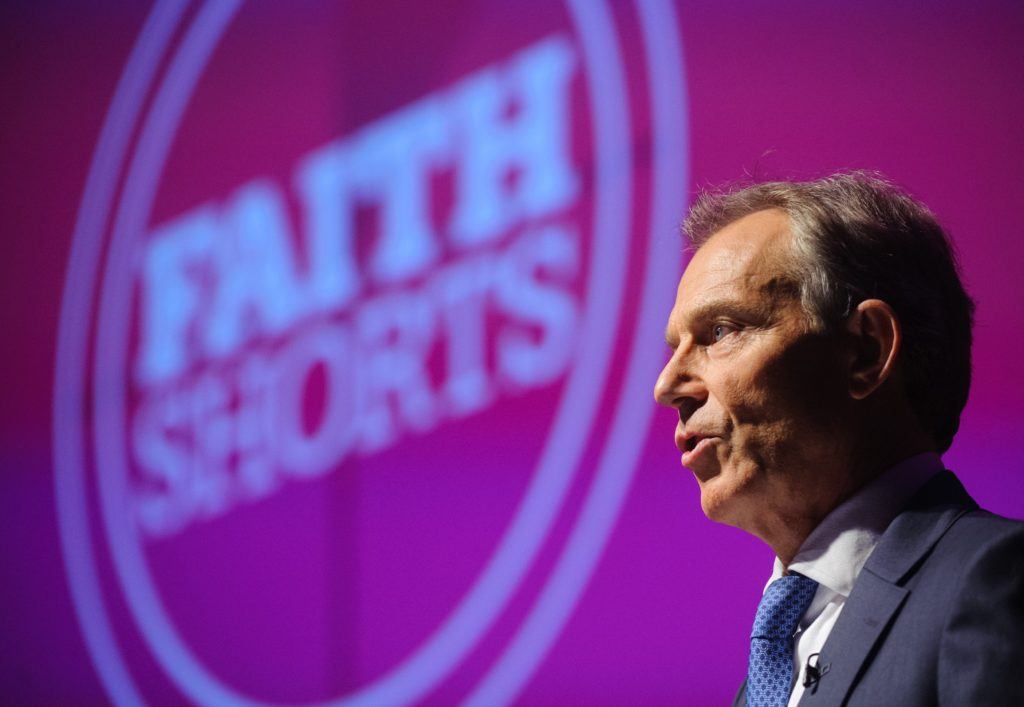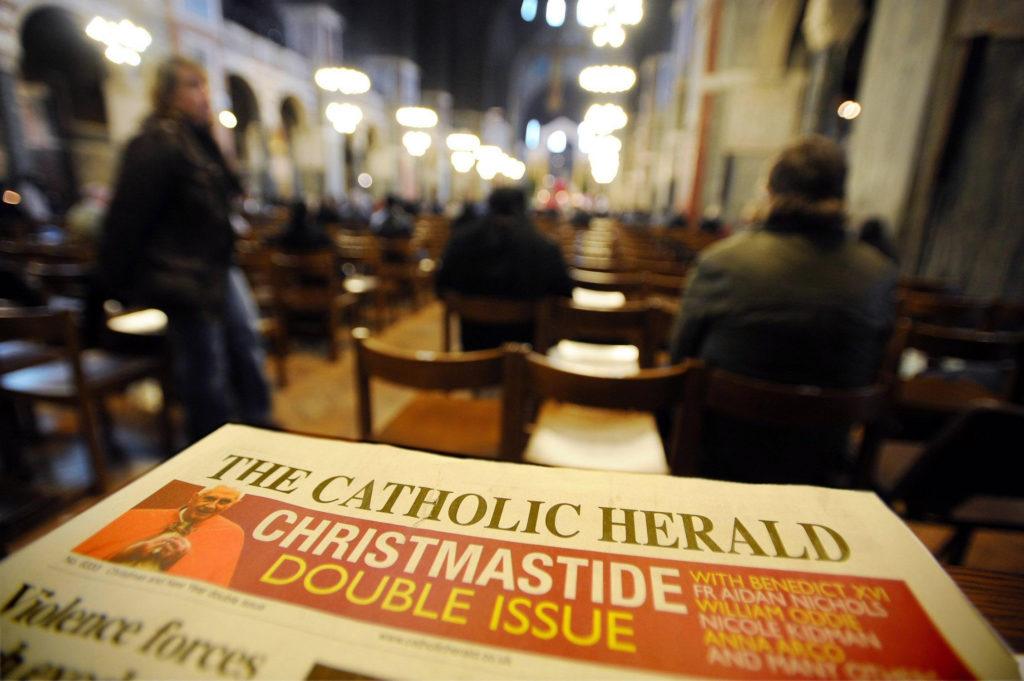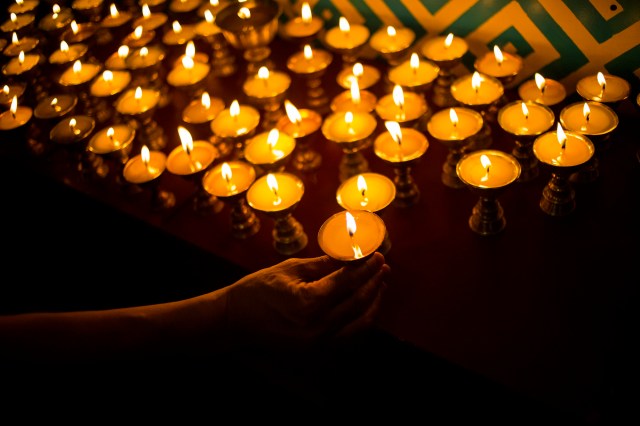
The departure of The Guardian’s regular vicar-pundit, Giles Fraser, from his weekly slot as a commentator, chiefly on religious matters, is good news and bad. It’s good for readers of UnHerd, because he is now a columnist here and brings with him his stimulating intellectual liberalism – he may be the only Guardian liberal to have outed himself as a Brexiteer.
It’s bad, though, for readers of The Guardian, who have lost someone in their comment pages who undermines so many misconceptions about the clergy and Christianity generally – not least the smug secular assumption that God-botherers really aren’t very clever. Giles is.
His departure also reflects a dispiriting trend in contemporary British journalism, which is to treat religion as insufficiently important and interesting to merit proper coverage, which would entail specialist reporters and columnists with a particular interest in religion. The Guardian still has a designated religious affairs correspondent, Harriet Sherwood, but that’s for news rather than comment. The best of her recent predecessors, Stephen Bates, ranged across news and opinion slots and was heartily loathed by religious conservatives. But really did know his stuff, not least Vatican affairs and the CofE synod. Alas, that degree of expertise in mainstream media is now rare.
Yes, I know the BBC recently announced it would be devoting more, not less, time to religion – but that amounts to greater coverage of minority religions. And it’s vanishingly rare for its coverage of religion actually to cover religious belief, rather than subjects on which the world faiths generally differ from mainstream secular opinion; Sunday religious programmes dispiritingly often discuss issues such as homosexuality and transgenderism which are moral as much as religious and on which people of little faith are also divided.

There’s also a defensiveness about the way in which organisations such as Tony Blair’s Faith Foundation promote religion as something which has never been more important than now: the rather obvious subtext is, we’d better try and understand Islam, because Muslims may try to blow us up on account of their religion. It is a mildly dispiriting take on the subject to say the least.
Here at UnHerd we take religion, and religious literacy, seriously. In that spirit, I would like to share some of the interesting sites that I visit.
RealClearReligion is an American site with an abundance of useful links. It carries a range of articles from other journals on the subject of religion, from Standpoint to The Atlantic and The Smithsonian and its range of interest is vast: current article titles range from Do We Have Souls? to an analysis of President Trump’s decision to shift the US embassy to Jerusalem, as well as an essay on Buddhism and science.
Muslim News is perhaps the largest ethnic minority news website in Britain and provides a Muslim take on world events as well as news about communities worldwide. Its coverage of Middle Eastern issues is from an Islamic perspective – notably on the Israeli-Palestinian conflict – and it also has regular coverage of perceived Islamophobia. A useful site for non-Muslims too.
The Tablet is the established voice of liberal British Catholic opinion and a very civilised voice it is. It covers a good range of home and international church news and if its editorials are impeccably liberal (communion for divorced and remarried Catholics is a particular concern), that’s what its readers like. Disclosure: I write a fortnightly column for it.
The Catholic Herald is the more conservative organ of British Catholicism. Its website is excellent, with a digest of daily Catholic must-reads and regular updates on world church news. It covers some interesting tangential topics too. The Herald is, for a conservative paper, rather more critical of Pope Francis than, say, The Tablet but what used to be an unbridgeable gulf between the two has mellowed into a civilised debate.

America Magazine is the journal of American Jesuits, and reflects the preoccupations of the order, especially with refugee issues. It has, however, global scope as well as a US perspective.
Pravmir.com is a good website for the Russian Orthodox church. It has devotional content too, but the most useful aspect of the site is its coverage of church affairs from within Russia and glimpses of its relationship with government.
The New York Times has a good range of reporting and comment on the subject from a variety of standpoints, many being comment pieces from the paper – the paper paper doesn’t shy from the subject. One recent piece is a discussion of Oprah Winfrey as the pope of the American religion, which is one way of looking at her.
It’s perhaps not terribly helpful to provide two websites called The Tablet, nonetheless I shall. As well as the (older established) Catholic magazine mentioned above, there is another Tablet which gives a good perspective on US Jewish affairs, and global Jewish news, as well as politics and features. It’s probably not a bad idea for the readers of the respective sites to come across each other’s content by accident.
Crux is a reliable and moderate US Catholic journal, edited by the excellent John L Allen Jnr. It was originally conceived in 2014 as an offshoot of the Boston Globe but now is an independent site which gives a range of Catholic news and perspectives.
You’ll have noted that many of the sites mentioned above are American. That’s because the US – where the separation of church and state is foundational – treats religion not as an offbeat minority concern but as it is, a matter of mainstream relevance, interwoven with every other aspect of society, deserving expertise, space and respect. Fortunately, UnHerd is playing its part too.









Join the discussion
Join like minded readers that support our journalism by becoming a paid subscriber
To join the discussion in the comments, become a paid subscriber.
Join like minded readers that support our journalism, read unlimited articles and enjoy other subscriber-only benefits.
Subscribe